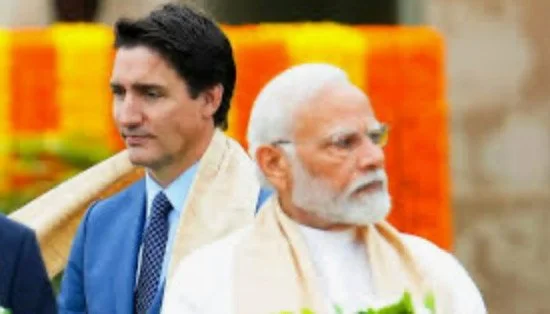Winds of war between India and Pakistan
Asia is at high-risk of another war between two nuclear powers. Tensions between India and Pakistan are getting higher in the last days, with their rivalry begun with the grueling independence from Great Britain in 1947. The main reason for the historic dispute is the borders alongside the Kashmir region. It was years since the hostilities at the border did not reach such levels.
New tension in the air
The new escalation of tension has begun when Indian military jets have trespassed on Pakistani territory to carry out air raids on some objectives linked to the extremist Islamic group Jaish-e-Mohammed, recently accused of a bloody attack in India; the target was a training camp in Bakalot, about 200 km from Islamabad.
The reports of the operation given by the governments of India and Pakistan were very different. The New Delhi government called it "a success", and assured that more than more than “200 terrorists” were killed, in response to the attack that two weeks earlier had caused the death of about forty Indian soldiers. The government of Islamabad, instead,insisted on a complete failure, affirming the ineffectiveness of the Indian raids, that would have only hit an uninhabited area.
The next day, February 27th, Pakistan has,in retaliation,trespassed with its military jets on Indian airspace, thus provoking the reaction of the Indian aviation that took off its jets. Islamabad anti-aircraft shot down two Indian jets which entered its airspace. One of the two Indian fighter jets has crashed in the Indian territory of the Himalayan region, while the second in Pakistani Kashmir. The pilot of the second jet was captured by the Pakistani troops, but released after a few days - on March 1st - as a sign of "good will" in the resolution of the crisis.The reaction of Islamabadwas expected, in response to the air attack conducted by New Delhi the day before.
Pakistan immediately closed the airspace for all commercial flights, while India closed its airspace north of Delhi.
The tension between the two countries is high again after February 14th, when the Pakistani combatants who fight for control of the region launched an attack against a convoy of Indian soldiers near Pulwama, in the India-controlled part, causing the death of 44 soldiers. The Delhi government had attributed responsibility to the terrorists of Jaish-e Mohammed, a militant group active in Indian Kashmir, and consequently threatened a very harsh response against Pakistan, accused of being the cause of the attack.
Attempts to peace
The Pakistani premier, Imran Khan, said that his country is open to a dialogue with India to avoid an escalation of the crisis, and ensures that Islamabad "does not want war". He stated that "common sense must prevail, since war is not in anyone's interest" and that "calculation errors" must be avoided on both sides.
Regarding the two Indian jets shot down by the Pakistani anti-aircraft, the Premier said that Pakistan wanted to "show India that we have our own capabilities". Delhi's foreign minister, Sushma Swaraj, has also stated that the Indian government "does not want a further escalation of the situation, and that therefore it will continue to act with responsibility and moderation".
India and Pakistan have fought 4 wars over the past 71 years, including three in the Kashmir region. The fear is that the attacks of recent days may lead to a worrying escalation. Hence the US warning as an invitation for both India and Pakistan to moderation.
International alliances
It is interesting to note that on the one hand we see a strengthening of the already solid historical links between Islamabad and Beijing, in the context of the Belt and Road Initiative (BRI), and with the influence of Washington towards Islamabad now weakened; while on the other hand we see New Delhi remains close to the USA in terms of containment of Chinese expansionism in the Indo-Pacific area.
Conclusion
Two demonstrations were held in New Delhi and Lahore on March 4th to reaffirm the need for peace between the two countries. Human rights advocates call for the initiation of sincere dialogues to definitively resolve the conflict in the disputed area. However, both sides show a certain arrogance. The result of all this is "the expansion of the military budget, while poverty increases".
Although both the Indian and Pakistani authorities try to reassure public opinion, the escalation of tension alarms the international community; it is in this climate that India will go to the vote in a few weeks, at the moment of greatest tension between the two countries since 1971.
The events of the last few days and the reactions of the two governments testify to the seriousness of the political scenarios that are once again being created around the Kashmir issue, whose situation remains explosive; just as it is equally dramatic for the civilian population, whose development cannot in any case disregard peaceful relations with both neighboring countries, but today it is one step away from a very dangerous war that risks spreading rapidly.







